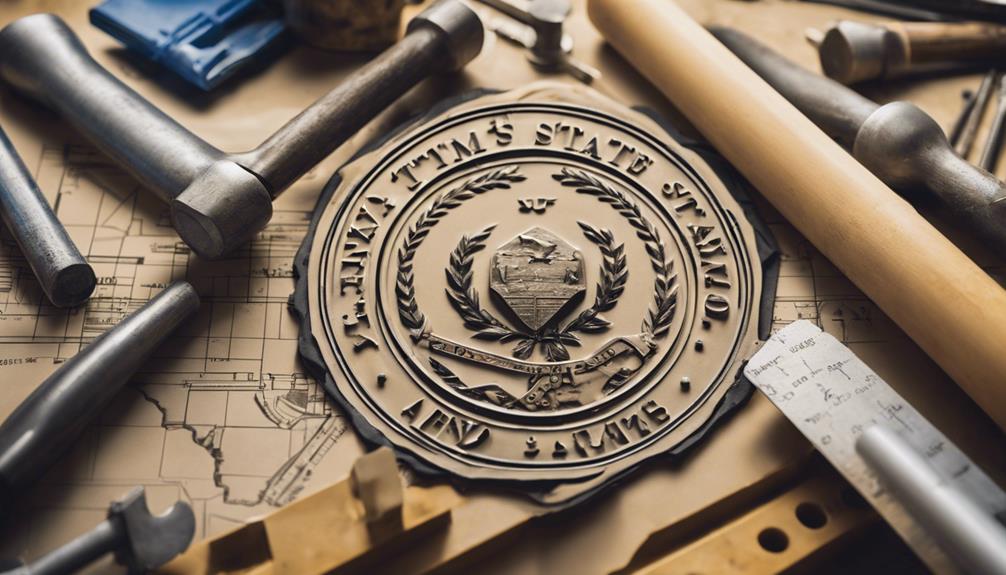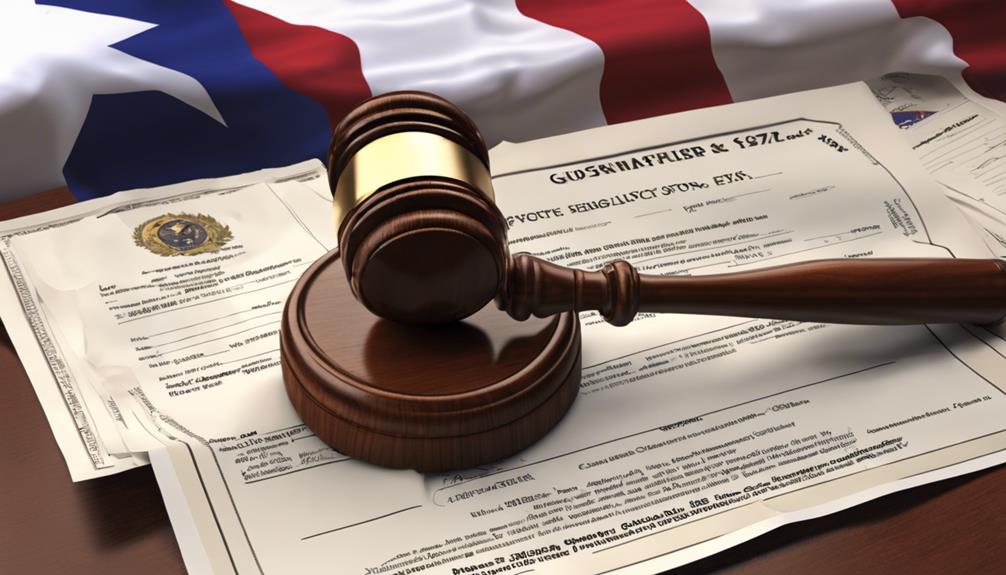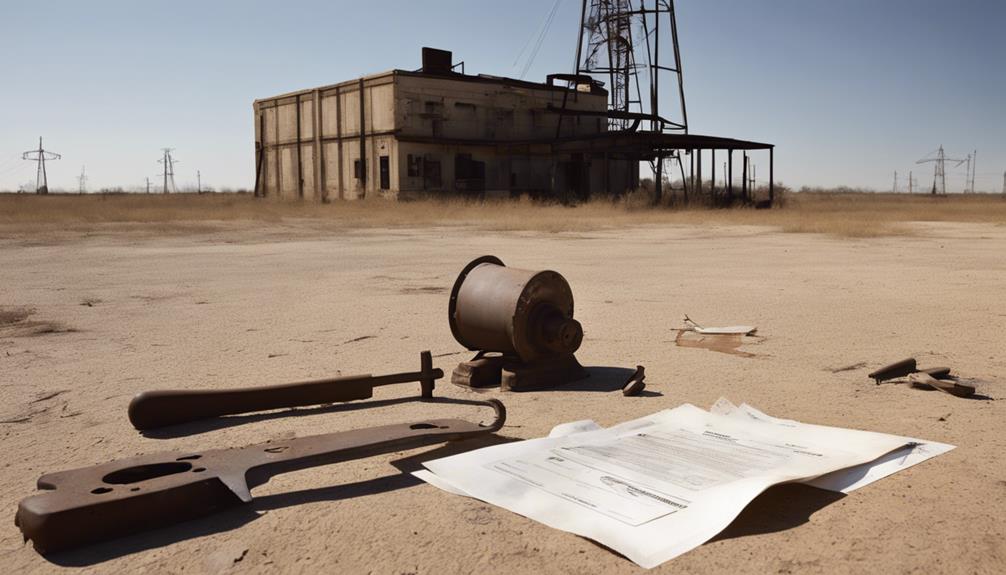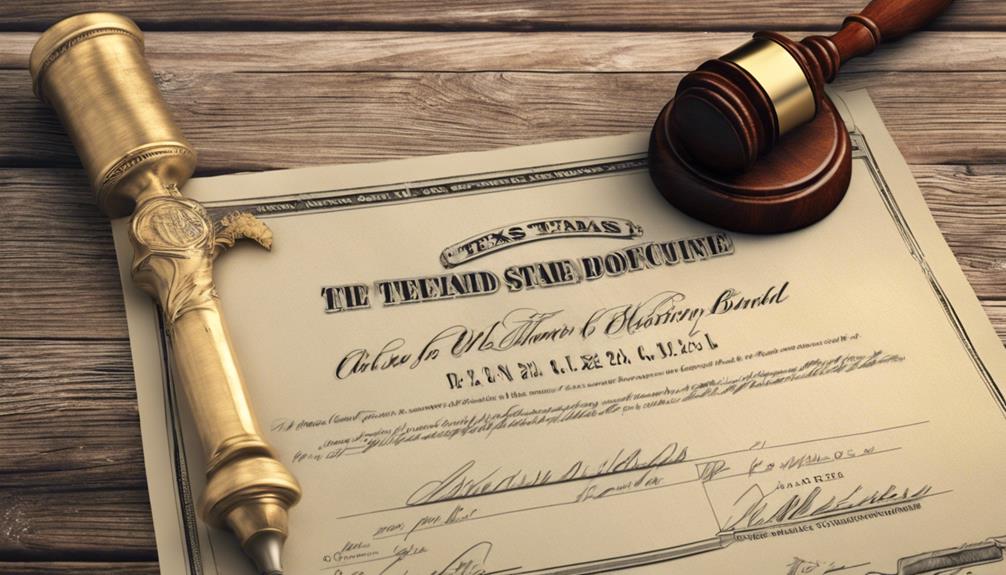If you're considering entering the manufacturing sector in Texas, understanding the Texas Fee Interest-Manufacturer's License Bond is essential. This bond not only safeguards your business interests but also assures compliance with state regulations, which can significantly impact your operations. However, navigating the requirements and implications can be complex, and overlooking certain aspects might lead to unforeseen challenges. You might be wondering about the specific eligibility criteria or how the application process works, which are critical to ensuring your business remains compliant and competitive. Let's explore these aspects further.
Overview of the BA Bond

The Texas Fee Interest-Manufacturer's License Bond, often referred to as the BA bond, serves as a crucial financial guarantee for manufacturers. This bond ensures that you, as a manufacturer, comply with state regulations and fulfill your obligations to customers, suppliers, and the government.
By obtaining this bond, you're demonstrating your commitment to ethical business practices and financial responsibility.
When you apply for the BA bond, you'll typically need to provide details about your business operations, financial health, and any relevant licenses. The bond amount varies based on the type and size of your manufacturing operation.
Once secured, the bond protects your clients and the state from potential losses due to your failure to meet legal requirements or contractual obligations.
If you ever default on your commitments, the bond provides a safety net for affected parties, allowing them to file a claim against the bond. This means you've got a vested interest in maintaining compliance and upholding your business standards.
Importance of the BA Bond
A BA bond is essential for any manufacturer looking to establish credibility and trust in the marketplace. By obtaining this bond, you're not just fulfilling a regulatory requirement; you're also showing your commitment to ethical business practices. It acts as a safeguard, reassuring customers, suppliers, and partners that you'll adhere to laws and regulations governing your operations.
Additionally, securing a bond can provide peace of mind to clients who may be concerned about the reliability of your products and services, as seen with Texas Surety Bonds which cover various business needs.
When you have a BA bond, you signal to potential clients that you're a responsible manufacturer. This can help you stand out in a competitive landscape, giving you an edge over those who haven't taken this important step. If any issues arise, such as failure to deliver goods as promised or legal disputes, the bond provides a financial safety net for your clients. This means they can seek compensation for any losses incurred due to your actions.
Moreover, having a BA bond can enhance your business's reputation. It demonstrates that you're willing to back your promises financially, fostering trust and long-term relationships.
Eligibility Requirements

To qualify for a manufacturer's license bond in Texas, you'll need to meet specific eligibility requirements set by the state.
First, you must be at least 18 years old and be a legal resident of Texas or a business entity registered in the state. You'll need to provide proof of your identity and business status, which could include a driver's license or articles of incorporation.
Next, you should have a clean criminal record, particularly regarding any felonies or misdemeanors related to manufacturing or fraud. The state looks closely at your background to ensure you're a responsible candidate.
Additionally, financial stability is crucial; you may need to provide financial statements or credit reports to demonstrate your ability to meet the bond's obligations.
Application Process
Navigating the application process for a manufacturer's license bond in Texas can seem daunting, but it doesn't have to be.
First, you'll want to gather the necessary documents, including your business registration and any relevant licenses. Having these ready will streamline your application.
Next, find a surety company that specializes in these bonds. They'll guide you through the specifics and help you fill out the application.
Be prepared to provide information about your business, such as its structure, financial history, and any past legal issues.
Once you submit your application, the surety company will review it and assess your risk level. This may involve a credit check and verification of your business background.
If everything checks out, you'll receive your bond terms.
Cost of the Bond

Understanding the cost of a manufacturer's license bond in Texas is crucial for budgeting your business expenses. The cost of this bond typically ranges from 1% to 15% of the total bond amount, which can vary based on several factors.
These factors include your credit score, the bond amount required by the state, and the underwriting criteria of the surety company you choose. For instance, the importance of compliance with bonding requirements fosters industry integrity and accountability, which can also influence your bond cost.
For example, if the state mandates a $10,000 bond, you might pay anywhere between $100 to $1,500 annually, depending on your financial profile. If you have excellent credit, you'll likely pay closer to that 1% range, while a lower credit score could push you toward the higher end.
It's essential to shop around and compare quotes from different surety companies. Each company will assess your risk differently, so you may find varying rates.
Additionally, ask about any hidden fees or costs associated with obtaining the bond. By understanding these costs upfront, you can better plan your budget and ensure that you're financially prepared to maintain compliance with Texas regulations.
Renewal and Maintenance
Renewing and maintaining your manufacturer's license bond in Texas is essential to keep your business compliant and operational. To ensure you're always in good standing, keep track of your bond's expiration date. Generally, these bonds need renewal annually, but it's crucial to check the specific terms of your bond agreement.
Additionally, understanding the specific types of surety bonds required for your industry can aid in compliance and operational efficiency.
When it's time for renewal, contact your surety provider well in advance. They'll guide you through the renewal process, which often involves submitting updated information and paying the renewal premium. Staying proactive will help you avoid any lapses in coverage.
Make sure you maintain accurate records of your bond documents and any communication with your surety company. This documentation can be invaluable in case of disputes or inquiries regarding your bond.
Also, review your business practices and any changes in regulations that may affect your bond requirements. If your operations expand or change, you might need to adjust your bond amount or terms accordingly.
Consequences of Non-Compliance

Failing to comply with the requirements of your manufacturer's license bond can lead to serious repercussions for your business. First and foremost, you risk facing hefty fines and penalties from regulatory authorities. These financial burdens can quickly add up, jeopardizing your company's cash flow and overall financial health.
Additionally, non-compliance can result in the suspension or revocation of your manufacturer's license. Without this crucial license, you won't be able to operate legally, which could lead to significant losses in revenue.
Your reputation may also take a hit; clients and partners might lose trust in your ability to adhere to regulations, impacting future business opportunities.
If your bond isn't maintained, creditors can file claims against it, putting your assets at risk. This can create a ripple effect, leading to increased scrutiny from state regulators, which further complicates your business operations.
In short, staying compliant with your manufacturer's license bond isn't just a regulatory requirement; it's essential for the sustainability and growth of your business. Taking these obligations seriously can save you from unnecessary headaches and secure your company's future.
Resources for Manufacturers
Numerous resources are available to help manufacturers navigate the complexities of compliance and licensing.
First, you can visit the Texas Department of Licensing and Regulation (TDLR) website, where you'll find up-to-date information on licensing requirements, application procedures, and relevant regulations specific to your industry.
Additionally, industry associations like the National Association of Manufacturers (NAM) provide valuable insights, networking opportunities, and advocacy on behalf of manufacturers.
Joining such organizations can connect you with experts who understand the intricacies of compliance.
Local Small Business Development Centers (SBDCs) offer free consulting services to help you with business planning, compliance issues, and navigating state regulations.
They also provide workshops on compliance topics that can enhance your understanding.
Don't forget to utilize online forums and resources like the U.S. Small Business Administration (SBA) for guidance on federal regulations that may impact your operations.
Conclusion
In conclusion, the Texas Fee Interest-Manufacturer's License Bond is vital for your business's success. It not only ensures compliance with state regulations but also builds trust with your customers and suppliers. By understanding its importance and following the application process, you can secure your bond and protect your interests. Remember to stay on top of renewal and maintenance to avoid any consequences of non-compliance. Invest in this bond to enhance your credibility and foster sustainable growth in Texas.


